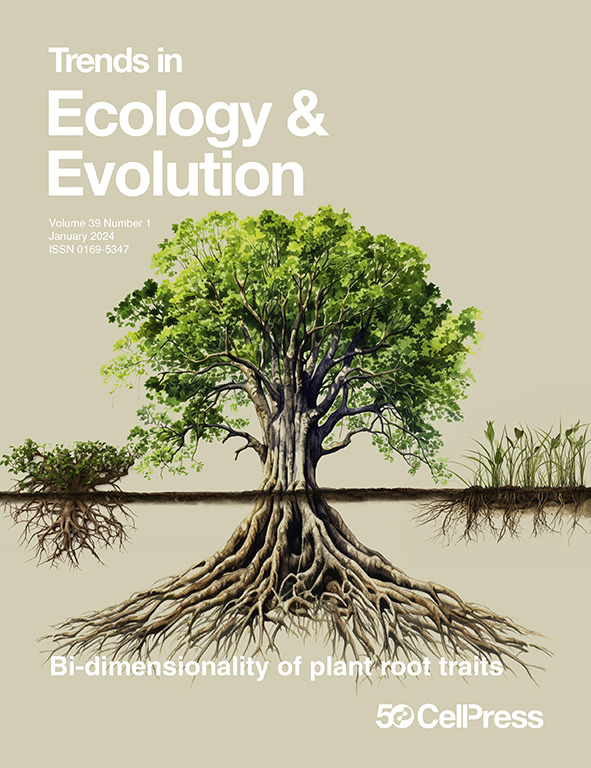气候变暖以不可预测的方式改变了资源配置。
IF 17.3
1区 生物学
Q1 ECOLOGY
Trends in ecology & evolution
Pub Date : 2025-05-01
Epub Date: 2025-04-22
DOI:10.1016/j.tree.2025.03.017
引用次数: 0
摘要
气候变化对人口进程的间接影响可能是广泛的,但难以衡量。Hacket-Pain等人的研究表明,气候变暖增加了欧洲山毛榉种子的产量,耗尽了内部资源,造成了长期的生长下降。如果类似的权衡在物种之间发生,气候变化可能通过资源枯竭削弱森林的复原力。本文章由计算机程序翻译,如有差异,请以英文原文为准。
Climate-warming alters resource allocation in unpredictable ways.
Indirect effects of climate change on demographic processes are likely widespread but difficult to measure. Hacket-Pain et al. show that climate warming increased European beech seed production, depleting internal resources and causing long-term growth declines. If similar trade-offs occur across species, climate change may weaken forest resilience through resource depletion.
求助全文
通过发布文献求助,成功后即可免费获取论文全文。
去求助
来源期刊

Trends in ecology & evolution
生物-进化生物学
CiteScore
26.50
自引率
3.00%
发文量
178
审稿时长
6-12 weeks
期刊介绍:
Trends in Ecology & Evolution (TREE) is a comprehensive journal featuring polished, concise, and readable reviews, opinions, and letters in all areas of ecology and evolutionary science. Catering to researchers, lecturers, teachers, field workers, and students, it serves as a valuable source of information. The journal keeps scientists informed about new developments and ideas across the spectrum of ecology and evolutionary biology, spanning from pure to applied and molecular to global perspectives. In the face of global environmental change, Trends in Ecology & Evolution plays a crucial role in covering all significant issues concerning organisms and their environments, making it a major forum for life scientists.
 求助内容:
求助内容: 应助结果提醒方式:
应助结果提醒方式:


